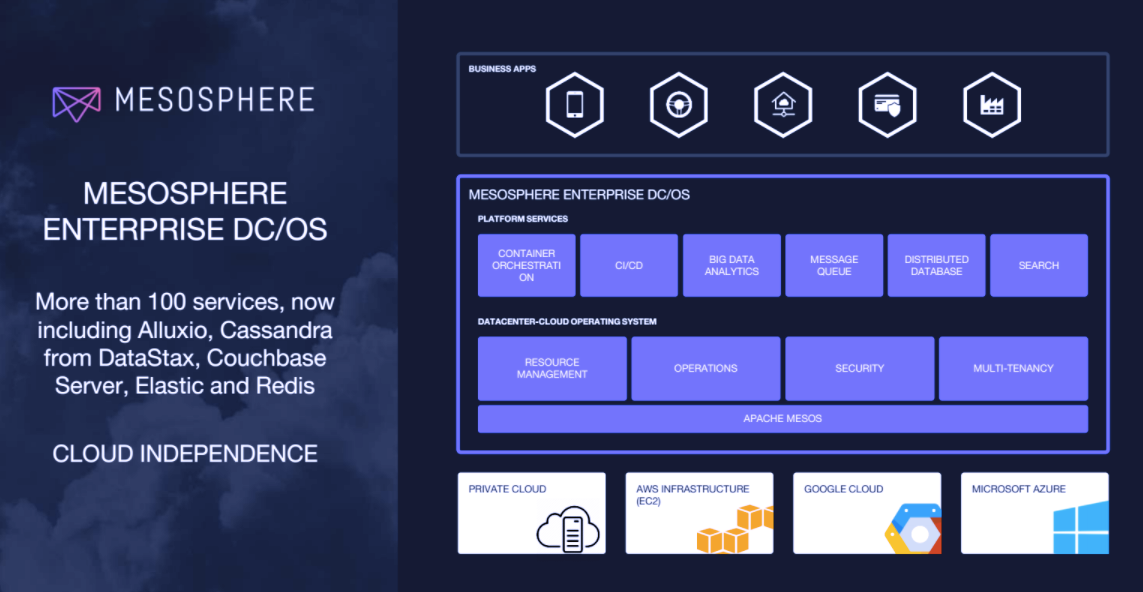Mesosphere is launching an updated version of its DC/OS platform for running microservices and big data applications in private and public clouds. Version 1.9 of DC/OS is a significantly bigger release than the version number indicates at first glance.
With this update, DC/OS users can now deploy more than 100 services with a single click. Some of the new services the company added in this release include Alluxio for high-speed distributed storage access, NoSQL database Couchbase, distributed database service DataStax Enterprise, analytics service Elastic Search and the Redis in-memory data structure store. All of these new integrations are based on the DC/OS Partner SDK. As the company notes, this means it’s now relatively easy (though still not completely trivial) to build a complete data services infrastructure within days.
In addition, DC/OS now includes support for GPU-based scheduling that allows operators to pool GPUs with the rest of their infrastructure and reserve it for machine-learning workloads. This is an extension of the work Nvidia and Mesosphere announced back in 2015.
DC/OS now includes new data collection and metrics that allow users to monitor their deployments across containers. This simplified logging system can be integrated with other monitoring tools, including Splunk and Datadog.
While it often seems like Mesosphere, Docker and Kubernetes are competing for the same customers, Mesosphere has found a niche for itself in the big data world. With this update, the company is building on its strength in this area, but it’s also clearly interested in supporting newer machine-learning workloads. Those, after all, are exactly the kind of workloads that now make a lot of the data enterprises stored in their data warehouses valuable again.

